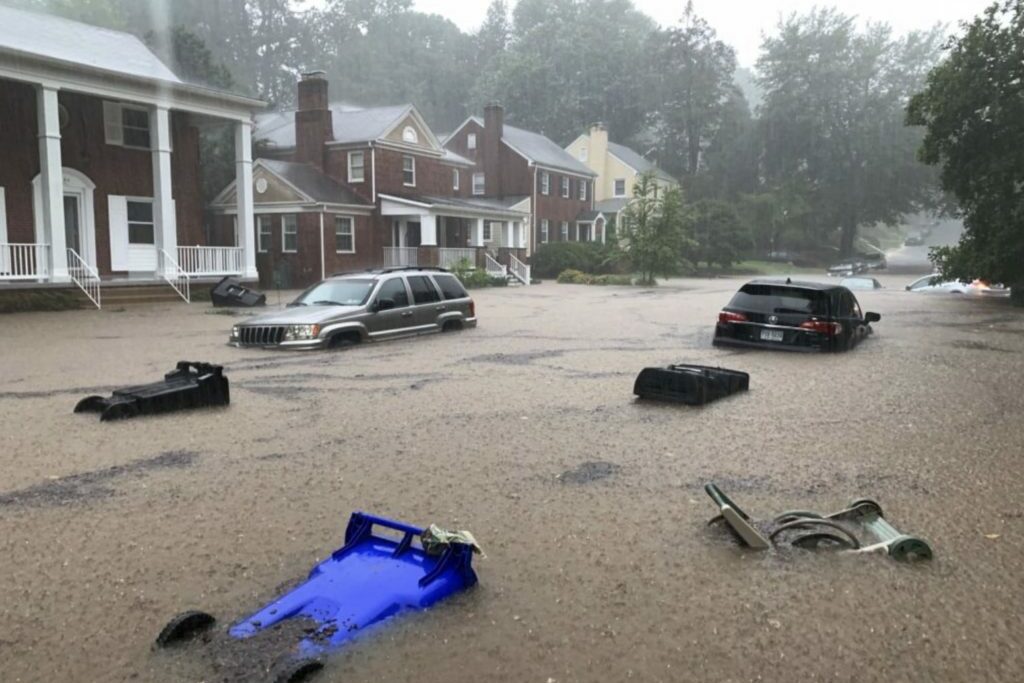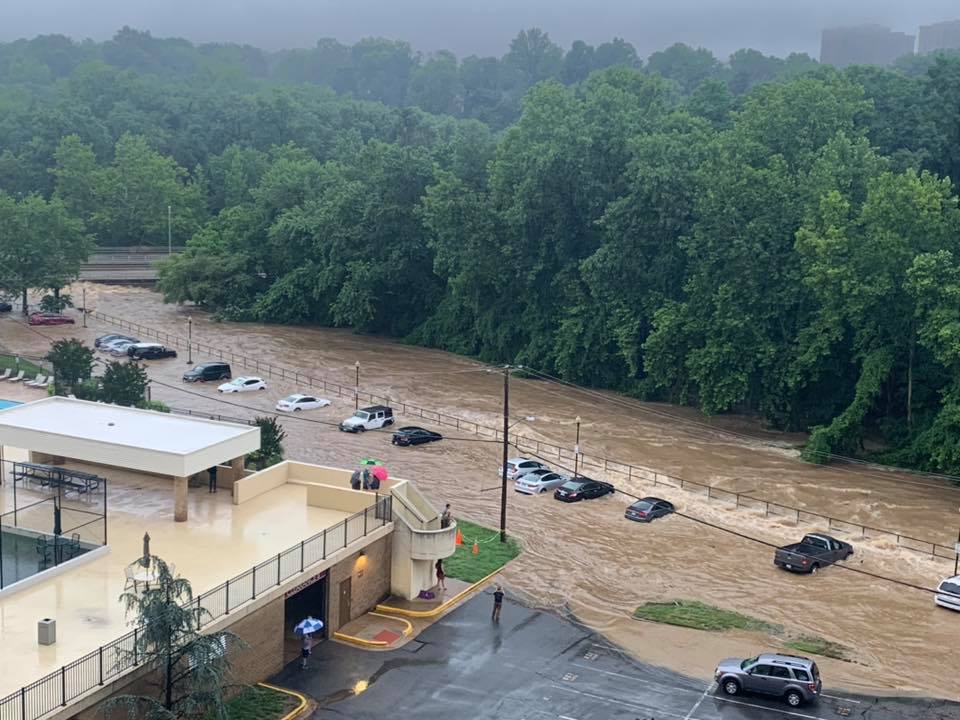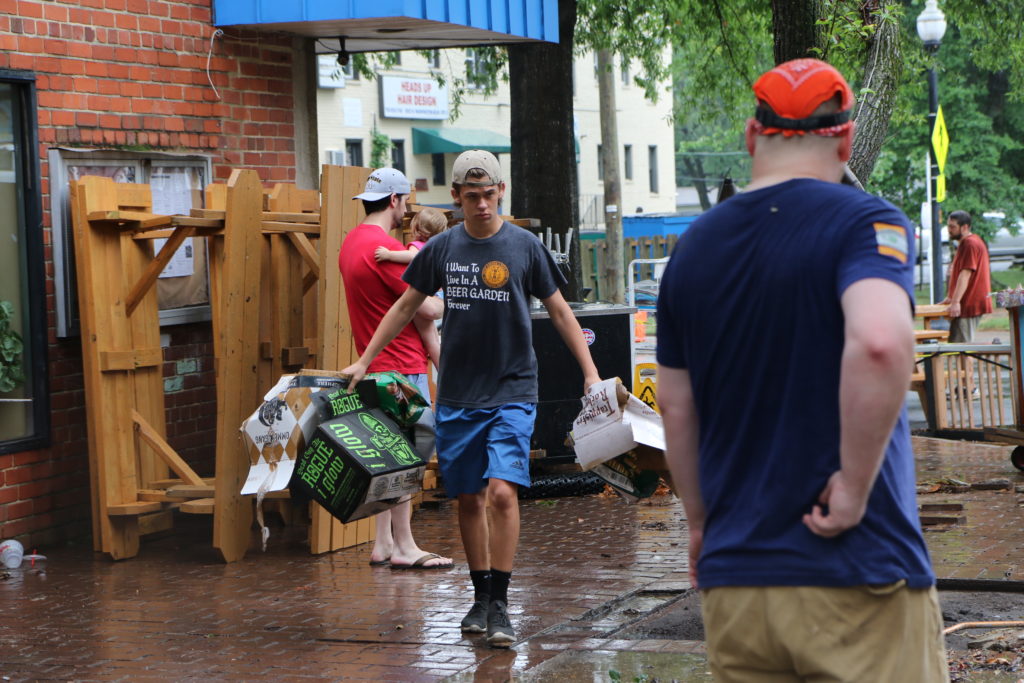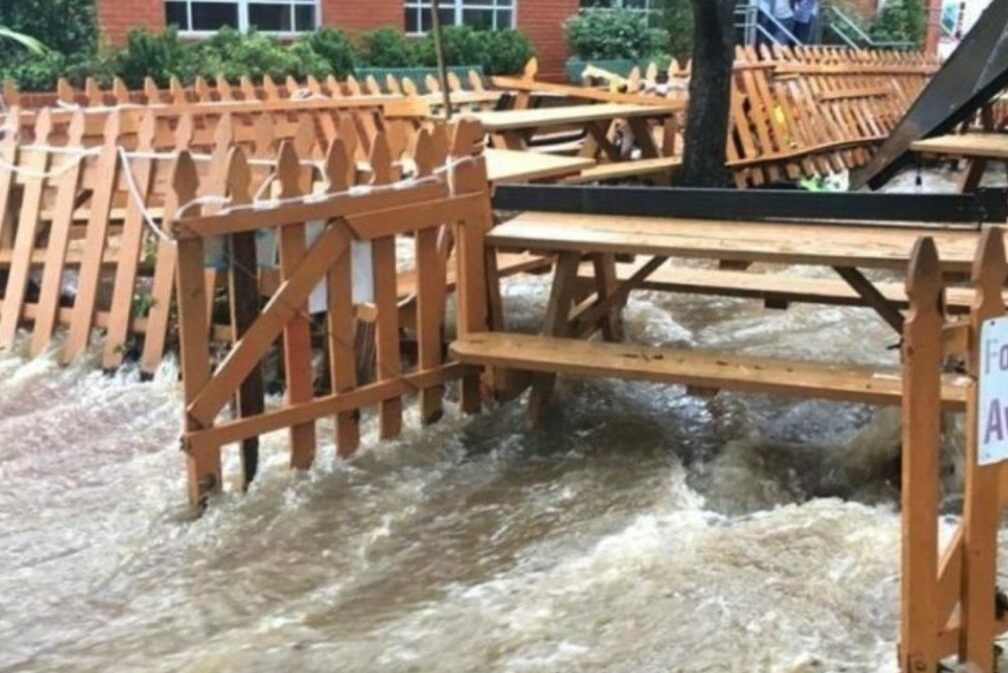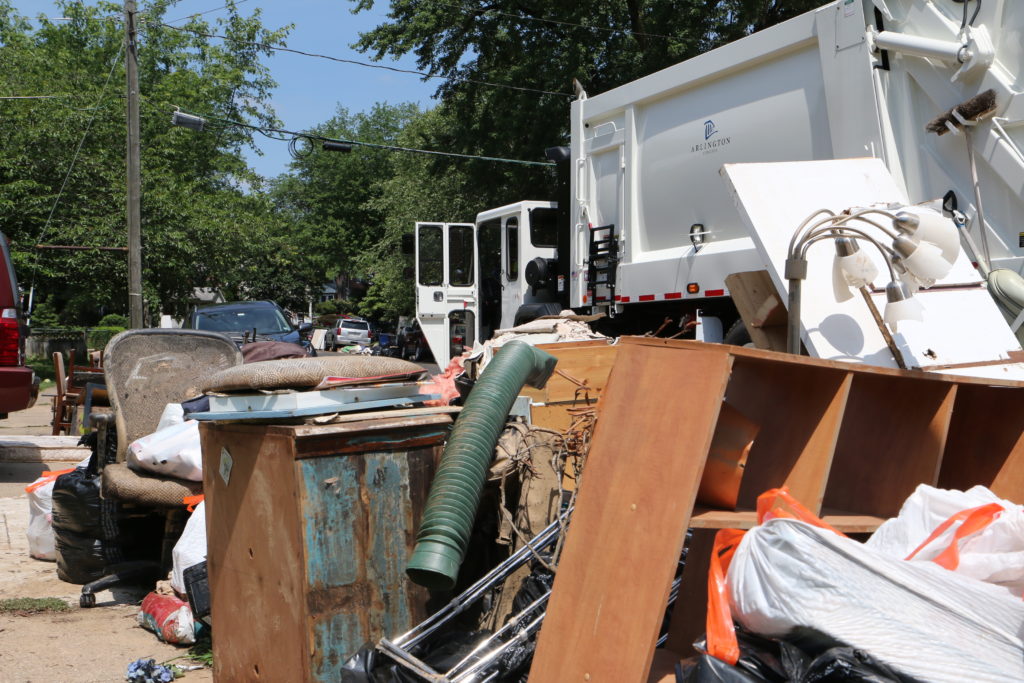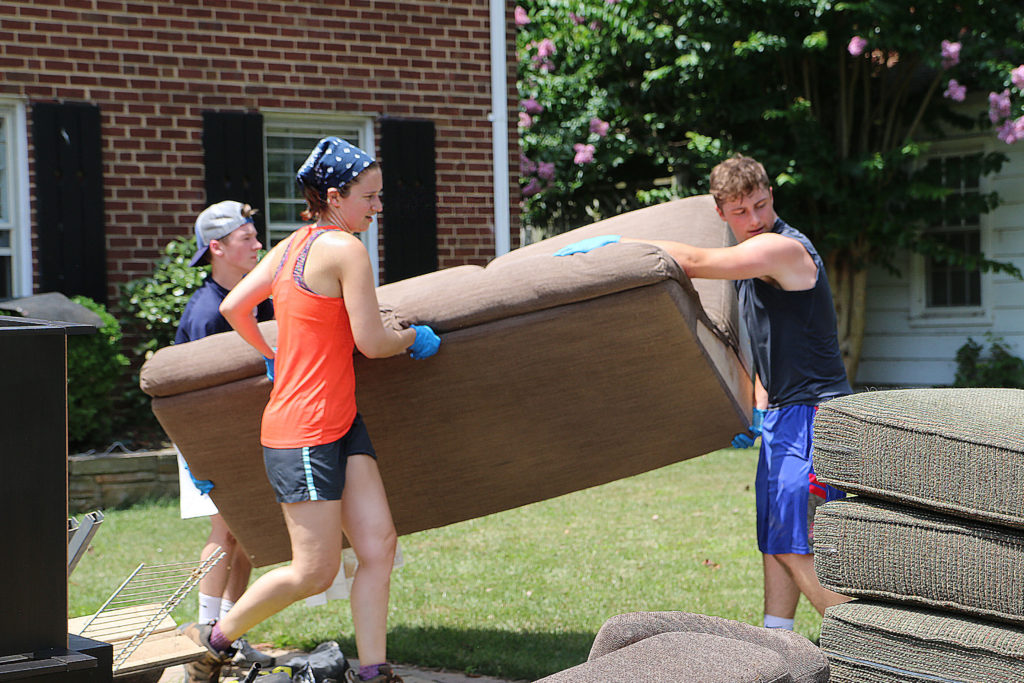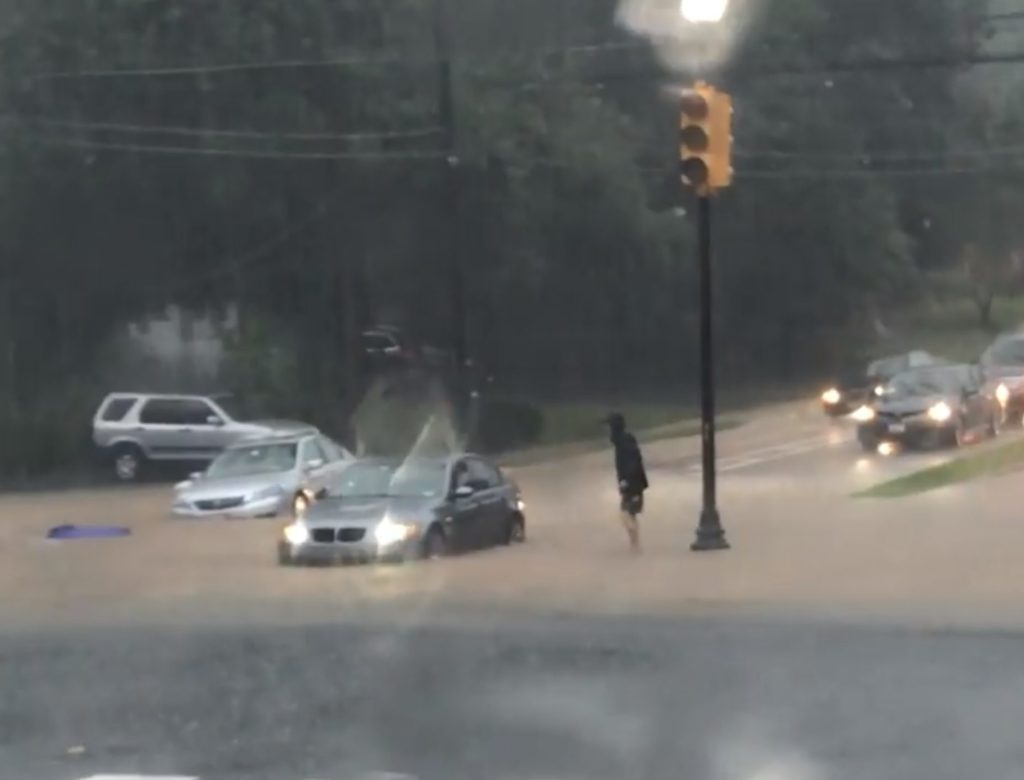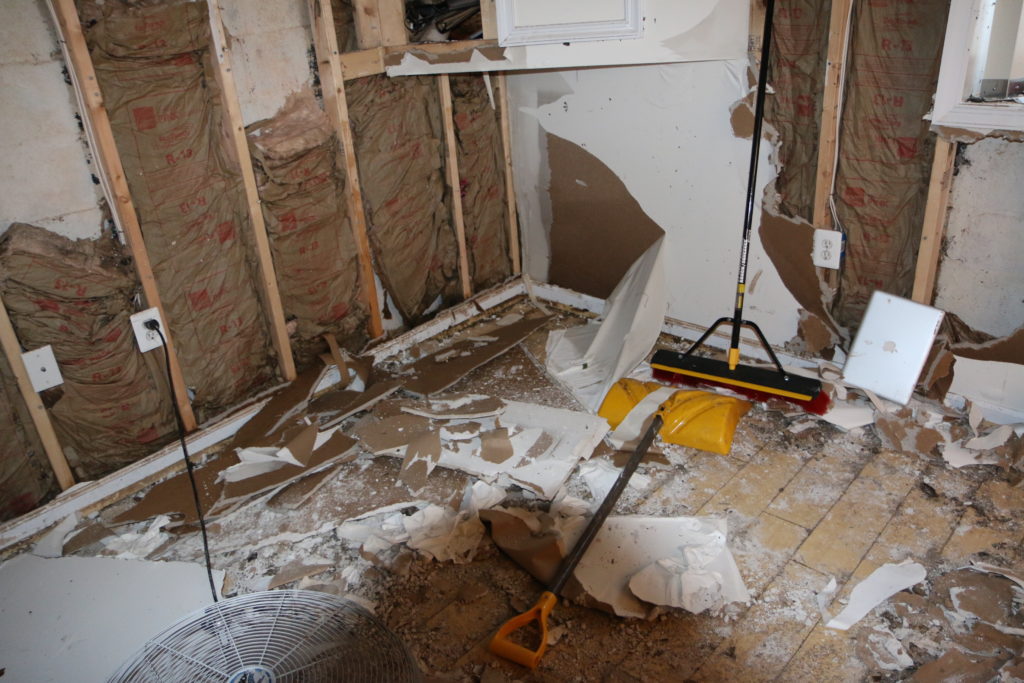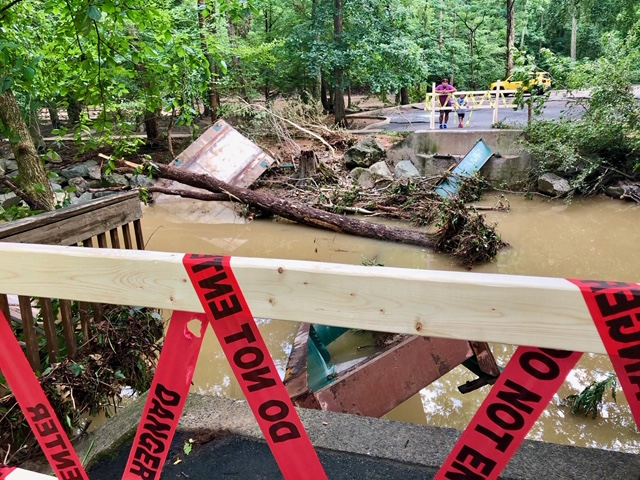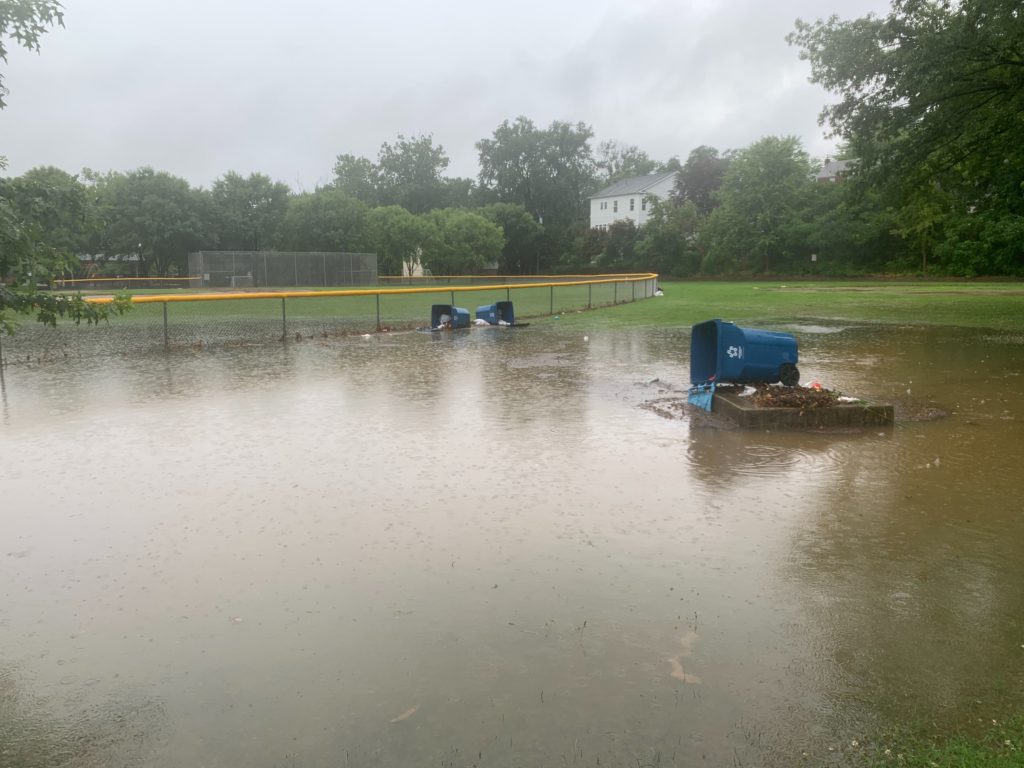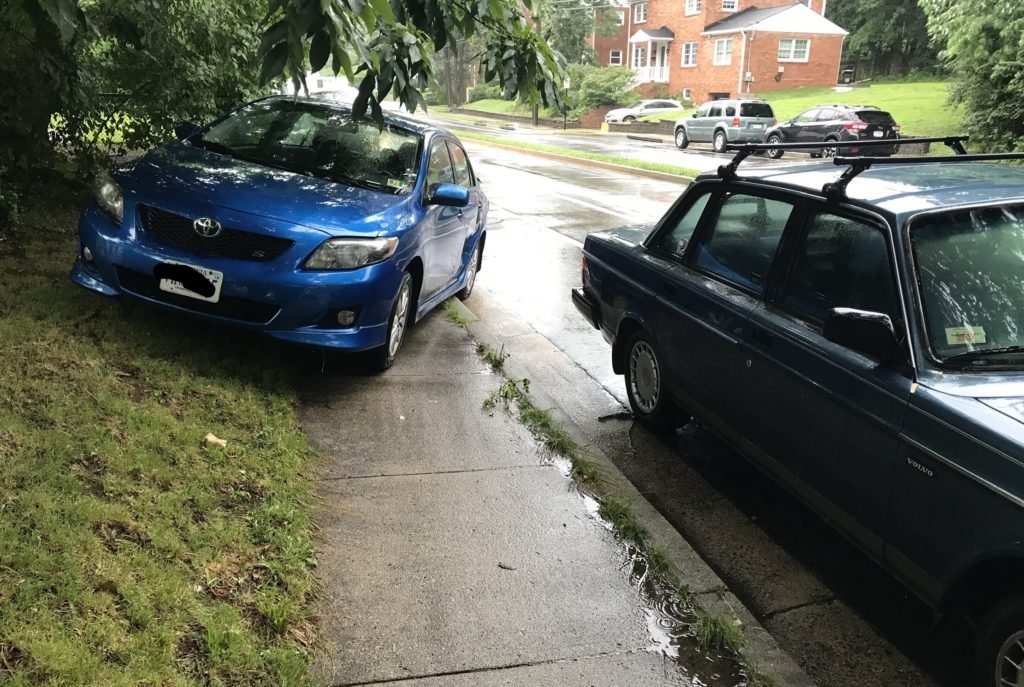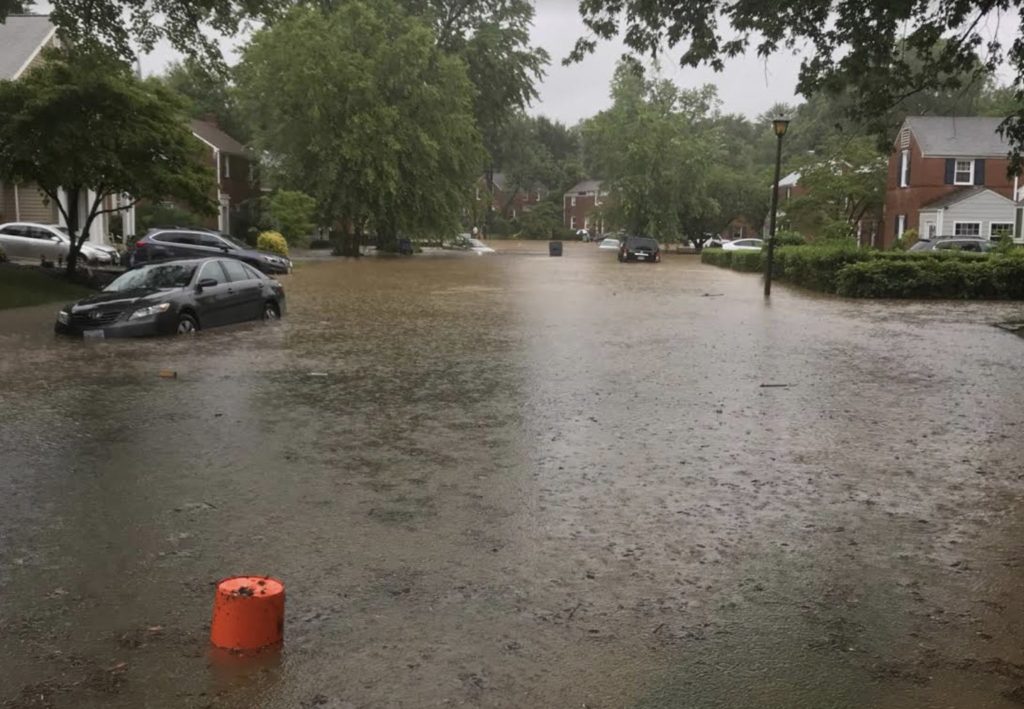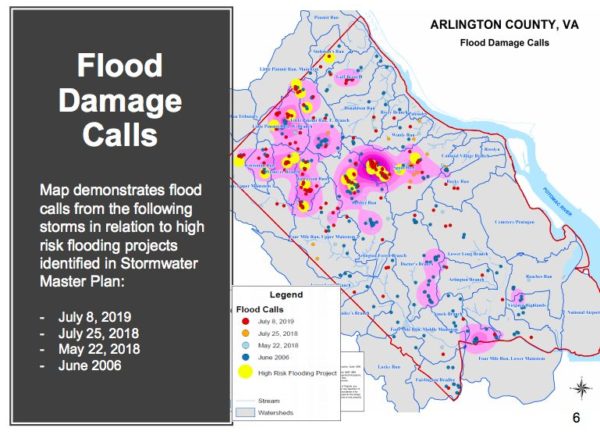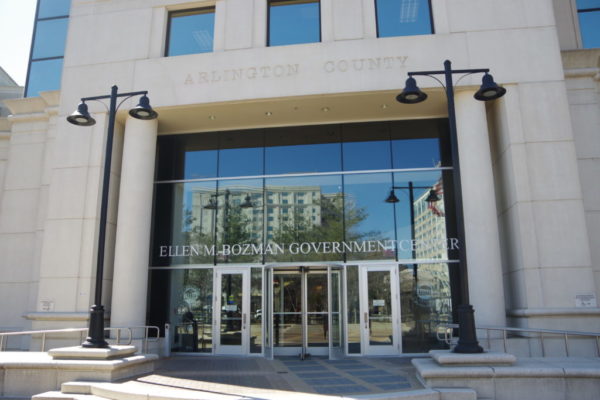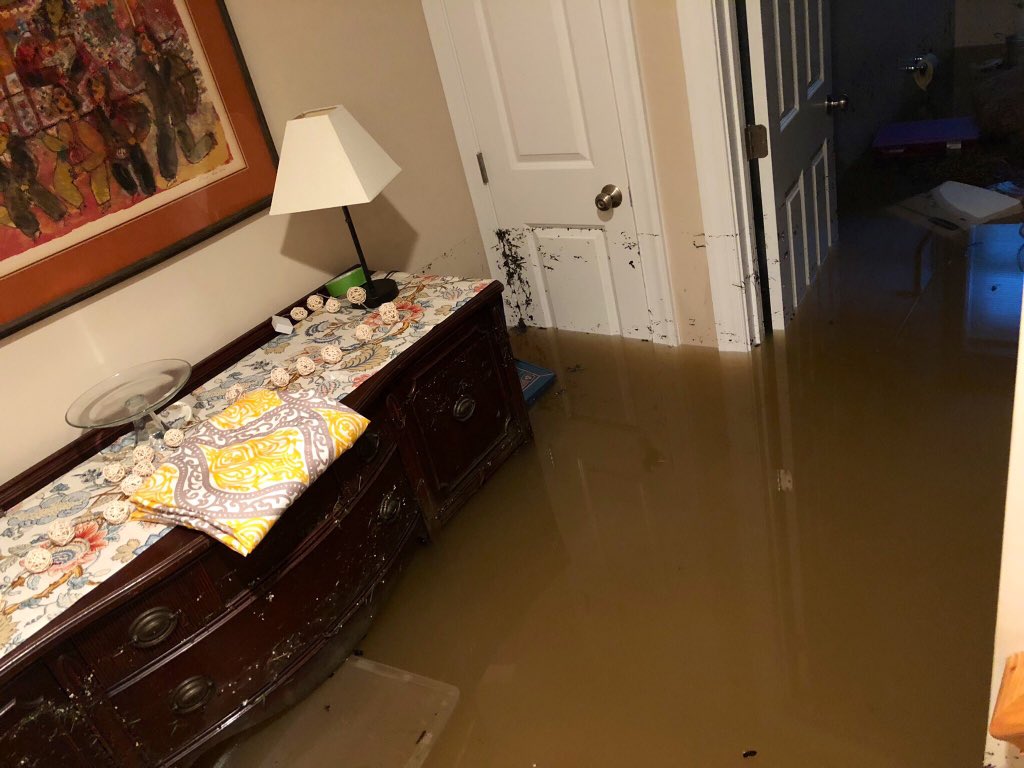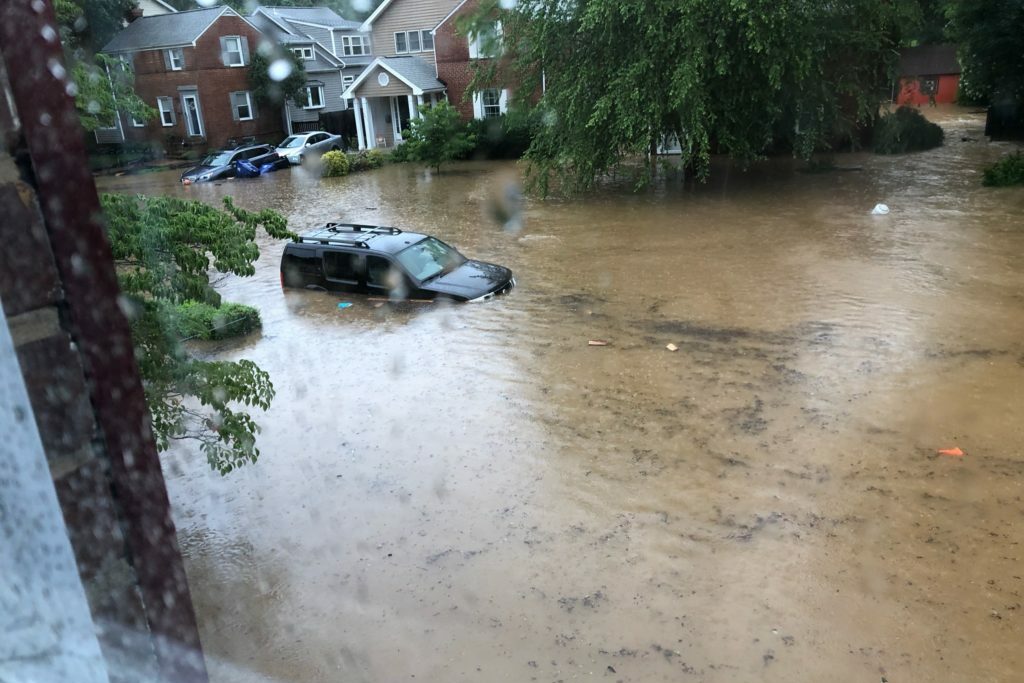Following weeks of fallout from the July 8 storm, Arlington officials are discussing a new program for tackling future floods.
During Tuesday’s County Board meeting, County Manager Mark Schwartz introduced “Flood Resilient Arlington,” to be considered during the spring budget planning.
Demetra McBride, who heads the Department of Environmental Services (DES) Sustainability and Environmental Management bureau, said Flood Resilient Arlington will include educational forums, site visits, and a potential flood-resilience incentive program to help the county prepare for increasingly extreme weather caused by climate change.
The program “builds upon” the 2014 Stormwater Master Plan, which outlined improvements to Arlington’s stormwater management systems, streams, and watersheds over the next 20 years, according to DES Chief Operating Officer Mike Moon.
“We hear about climate change, and it always seems to be somewhere else,” said Vice Board Chair Libby Garvey. “People tend to think and accuse the government of not doing something right, they don’t buy the climate change reason, so we have a level of education we [owe].”
Funding for Flood Resilient Arlington will not be established for “eight to nine months,” said Moon.
The next steps include approximately 80 visits from Board members beginning this month to sites deemed a “high risk” for flooding, or homes that received more than four feet of water during the July 8 storm. During the Tuesday presentation, McBride listed several neighborhoods — such as Waverley Hills, Westover, and Rock Spring — as high risk for future flooding based on past data. She highlighted steps homeowners can take to stay dry.
“I realize this is emotional for people, your home is a big investment,” McBride said. “They have families and children and they’re concerned for their safety.”
Two public forums to discuss the program are planned: one on Thursday, October 24 from 6:30-8:30 p.m. at Arlington Central Library (1015 N. Quincy Street), and another on Saturday, October 26 from 10 a.m.- 12 p.m. at George Mason University’s Arlington campus (3351 Fairfax Drive.)
During the meetings, the public can expect to:
- Hear from experts on flood-proof design
- Learn about flood insurance options and coverage
- Learn about how to flood-proof your house
McBride stressed homeowners need to educate themselves on flood insurance policies, also noting the county needs to step in with educational resources.
Several residents told ARLnow in the flood’s aftermath they had received conflicting information about their eligibility for flood insurance and were left fearing they would have to bear tens of thousands of dollars in repair costs.
During the disaster, dozens of residents fled their homes, a few beloved Arlington businesses closed for repairs, six pedestrian bridges were washed away, and thousands of dollars were raised on platforms such as GoFundMe. The county stated days later it would not cover any sewage overflow damage caused by the flood, telling ARLnow it would violate state law.
Since then, residents have applied for over $2.1 million in U.S. Small Business Administration (SBA) disaster loans, Schwartz shared, and Arlington businesses have applied for more than $100,000 in loans. Applicants can still file for a loan by Monday, October 7.
“During a majority of the 1,100 damage reports [this summer], people had insurance and thought they were protected, and then they realized there were exemptions and exclusions,” said McBride. “That’s a gap we would help to close.”
In addition to damage to private property, Arlington County reported $5.8 million in damage to county property and Joint Base Myer-Henderson Hall reported damage to 26 buildings.
McBride said Arlington will have to slowly overhaul its public infrastructure through several long-term projects — like upgrading the stormwater pipes, developing large tanks for water storage, and property acquisition — to help address the flood risk.
“These [will require] long-term disruption of neighborhoods,” she said. “I wish we could avoid that, but we’re simply not going to be able to and that’s going to be a partnership we need to have with the public.”


